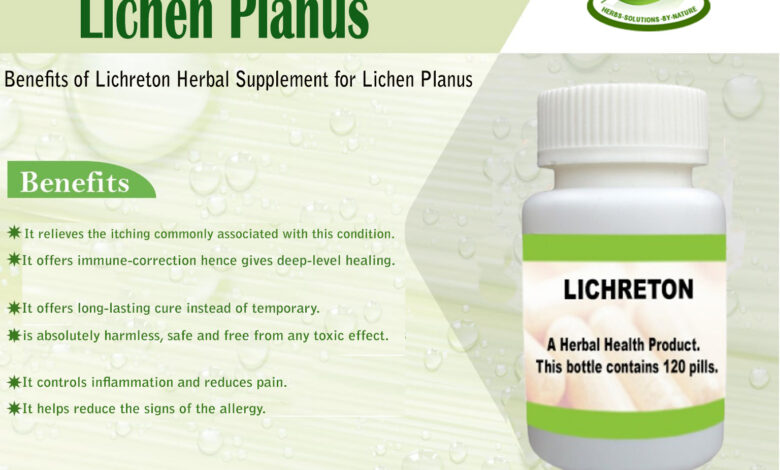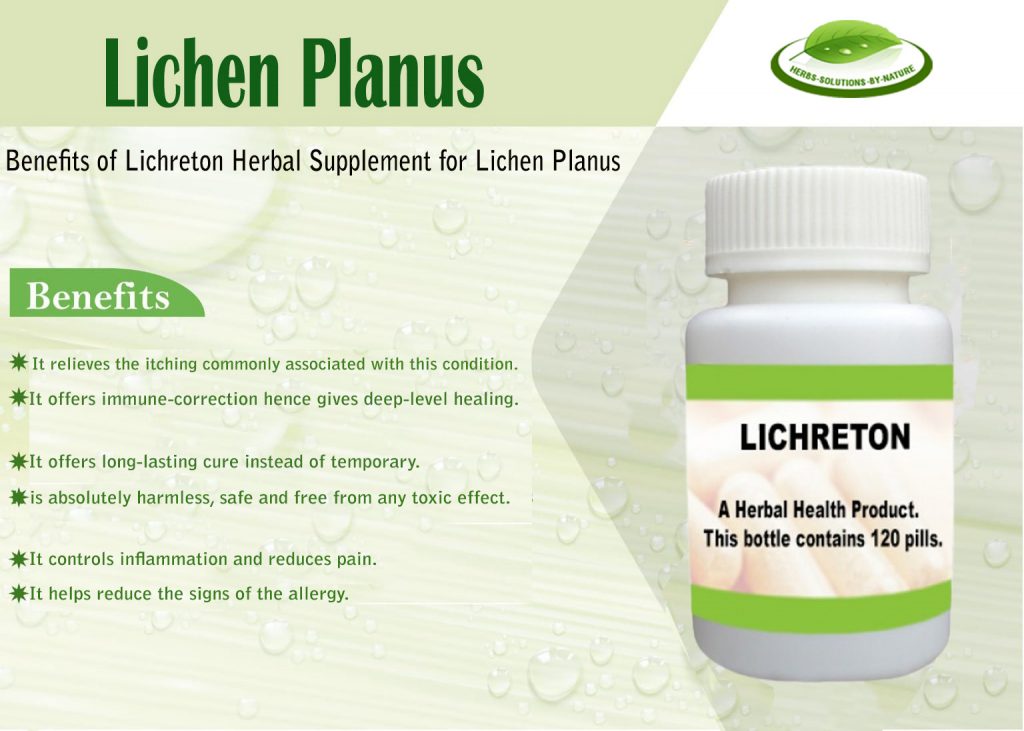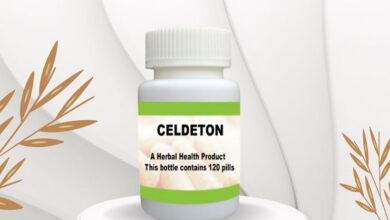How to Treat Oral Lichen Planus Naturally with Herbal Supplement

Oral lichen planus is a chronic inflammatory condition affecting the mouth’s inside. Fortunately, there are natural ways to treat it and alleviate its symptoms. Herbal supplement for lichen planus is an increasingly popular option as they can provide effective relief without the potential side effects of medications. In this blog post, we’ll explore how to treat oral lichen planus naturally with Herbs for Lichen Planus, the benefits of using Herbal Supplement for Lichen Planus, and what types of herbs are recommended for lichen planus.
Does Baking Soda Help with Oral Lichen Planus
Oral Lichen Planus (OLP) is a chronic inflammatory condition of the mouth, which can cause significant discomfort. Many look for natural remedies to help alleviate the symptoms of Oral Lichen Planus. One of the remedies that have been suggested is baking soda.
Baking soda is a standard household product known for its antacid and alkaline properties. Baking soda may be able to reduce the irritation caused by Oral Lichen Planus, as well as help to reduce inflammation. However, there is limited scientific evidence to support this claim.
A review of the current literature on the topic found that baking soda did not appear to benefit the treatment of Oral Lichen Planus. The authors concluded that more research is needed before it can be considered an effective treatment.
While baking soda may not be a viable treatment option for Oral Lichen Planus, it can help relieve other minor mouth irritations, such as canker sores. Baking soda can also be used as a mouthwash or applied topically to reduce inflammation and pain.
Ultimately, baking soda may not provide any benefit in treating Oral Lichen Planus. Still, it could be worth considering if you are looking for a natural way to manage the discomfort caused by this condition.
Licorice
Licorice, also known as Glycyrrhiza glabra, is a powerful Herbal Supplement for Lichen Planus that can help treat oral lichen planus naturally. It has been used to reduce inflammation in the mouth and treat the associated pain. Licorice contains glycyrrhizin, which has anti-inflammatory and anti-bacterial properties that may be beneficial for treating oral lichen planus.
It is important to note that taking large doses of licorice may cause side effects such as high blood pressure and water retention. Therefore, it is recommended that you take licorice in moderation or consult with your doctor before starting a licorice supplement regimen.
You can take liquorice orally as a powder or extract or topically as a paste or cream. For internal use, mix one teaspoon of the powdered herb into a cup of warm water and drink the solution twice daily. Alternatively, take one capsule of licorice extract twice daily.
When applying it topically, mix one teaspoon of powder into a small amount of warm water until thick paste forms. Apply this paste directly onto the affected area, leaving it on for 15-20 minutes before rinsing off. Repeat these two to three times daily.
As with any supplement, always consult your doctor before using licorice to treat oral lichen planus.
Chamomile
Chamomile is a herb that has been used for centuries to treat a variety of conditions. It is known for its calming and soothing effects, as well as its anti-inflammatory properties. When treating Oral Lichen Planus, chamomile can be a great option.
Chamomile can be taken in tea form or capsule form. To make chamomile tea:
- Steep the dried chamomile flowers in boiling water for 10 minutes and then strain out the liquid.
- Drink 2-3 cups of this tea daily.
- For the capsules, take 500-1000 mg three times daily.
When taken orally, chamomile can help reduce inflammation and pain associated with Oral Lichen Planus. It may also reduce itching and help to soothe any sores in the mouth. Additionally, chamomile is a powerful antioxidant, which helps to protect cells from damage.
Overall, chamomile is a natural way to help manage the symptoms of Oral Lichen Planus. Be sure to talk to your doctor before adding any Herbal Supplement for Lichen Planus to your treatment plan.
Calendula
Calendula is a natural herb often used to treat various skin conditions, including Oral Lichen Planus. It is a flowering plant with bright yellow and orange flowers and has been used for centuries in traditional herbal remedies. Calendula contains anti-inflammatory and antiseptic properties, which can help reduce inflammation and irritation associated with Oral Lichen Planus.
Calendula can be taken internally as a tea, capsule or tincture and applied topically. When taken internally, calendula helps to boost the body’s immune system and reduce inflammation. Applied topically, calendula can help soothe the affected area, reduce pain and discomfort, and speed up healing.
Speaking to your doctor before using calendula to treat Oral Lichen Planus is essential, as some medications may interact with the herb and cause side effects. Avoid applying the herb directly to open sores or irritated skin.
Myrrh
Myrrh has been used in traditional medicine for centuries to treat various skin conditions, including Oral Lichen Planus. The anti-inflammatory and antimicrobial properties of myrrh may help to reduce the symptoms of Oral Lichen Planus.
Myrrh is available in oil or extract, which can be applied directly to the affected area or taken orally as a supplement. It is important to remember that You should not take myrrh in high doses as it can be toxic. Talk to your healthcare provider about the correct dosage for you.
Studies have also shown that myrrh can help to reduce inflammation, itching and burning associated with Oral Lichen Planus. The herb has also been found to be effective at reducing the number of lesions caused by Oral Lichen Planus.
In conclusion, myrrh may be a helpful Herbal Supplement for Lichen Planus for those suffering from Oral Lichen Planus. Be sure to talk to your healthcare provider before taking any Herbal Supplement for Lichen Planus, as they can interact with medications or have unwanted side effects.
Lavender
Lavender is a popular herb for many reasons, and its healing properties make it an ideal Natural Remedy for Oral Lichen Planus. It has anti-inflammatory and antioxidant properties that may help reduce the pain and swelling associated with the condition. It can be used as a tea, tincture, or applied topically in oil form.
To make tea from lavender, steep 1-2 teaspoons of dried flowers in 1 cup of boiling water for 10 minutes. Strain the tea and drink up to three cups a day. You can also make a tincture by soaking 1-2 teaspoons of dried flowers in 1 cup of vodka for two weeks and straining out the herb. Take one teaspoon of the mixture up to three times daily.
When applied topically, lavender oil can be massaged directly into the affected area to help soothe the skin. Do a patch test first to ensure you don’t have any adverse reactions to the oil.
In conclusion, lavender is a powerful herb with many beneficial properties that may help treat the symptoms of oral lichen planus. It’s important to remember that even though lavender is generally safe, it may cause irritation or allergic reactions in some people, so be sure to talk to your doctor before using it.


